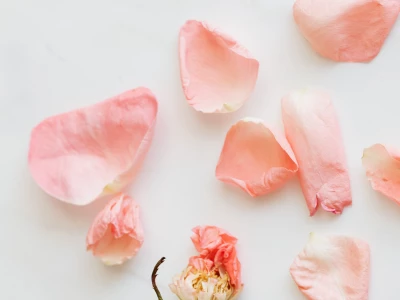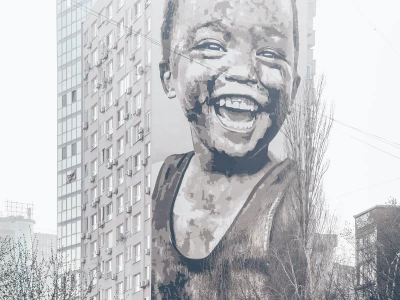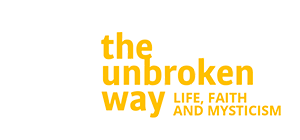Share this article
Learning From Suffering

Every Element Of Creation — Even Suffering — Is Infused With a Divine Spark
You’ll be glad you suffered’.’ my late wife, Cushla, said to me tenderly one day when I was feeling sorry for myself. I had been ruminating on the trials we had been through, including living with Cushla’s long-term debilitating illness and the loss of our baby girl, Meera Thérèse, through miscarriage. She wasn’t being sanctimonious or maudlin. Nor was what she said something she had just read from a book. It was one of her knowings ⸻it came from her soul.
Julian of Norwich, the renowned 14th-century Christian mystic and theologian, said that every element of creation — even suffering — is infused with a divine spark. Cushla had understood this for a long time, but I had only begun to intuit the truth of this belief from supernatural messages we both received after losing Meera Thérèse. In one particular interior message, I was ‘told’ that my suffering would glorify God. This mysterious message may sound absurd to the modern mind. It would have for me too, had I not been given a grace, at the same time that I received it:
It’s almost impossible to describe most spiritual experiences, but I began to sense, to some degree, that there was some enigmatic purpose for my suffering. It was such a relief to feel that my pain wasn’t wasted and served a higher purpose.
When Cushla said I’d be glad I suffered, I knew she meant that I’d be glad in the next life. But now, on reflection, I think she also meant that I’d be glad in this life too. After years of facing and overcoming adversity, I’m stronger, more peaceful and have a greater sense of purpose than ever before. I’m also at a stage where I can concur with what the mystics and modern-day psychologists say regarding the benefits of enduring suffering and difficulties:
Adversity Can Strengthen Relationships

'Character cannot be developed in ease and quiet. Only through experience of trial and suffering can the soul be strengthened, vision cleared, ambition inspired, and success achieved.'
*Helen Keller (1880-1968)
A serious misfortune intensifies the kind of relationship a couple has before it hits. A weak, troubled relationship will often falter in a crisis; a close, solid one will generally triumph. In a healthy relationship, trials will bring you to a deeper place. It was the hard times, mostly when Cushla was ill and when we grieved after losing Meera Thérèse, that brought us immeasurably close. I doubt if our love would have been as strong if life had been easy.
Hardship Can Make You Stronger
You’ve probably heard of post-traumatic stress disorder (PTSP), but now psychologists, especially those in the Positive Psychology* movement, have coined the term post-traumatic growth (PTG).
PTG refers to how adversity can often be a springboard to a new and more meaningful life: people re-evaluate their priorities, deepen their relationships, and find new understandings of who they are.
It’s important to note that PTG doesn’t mean people emerge unscathed from a bad experience, but, speaking for myself, I can say that facing and overcoming severe trials has made me stronger and less affected by stressful situations. I’m much more aware of life’s shortness and frailty, which gives me perspective regarding minor irritations and everyday difficulties. I also have more confidence in my ability to overcome obstacles and challenges. ‘You’ve overcome much bigger tests than this, and you survived. I can do the same again,’ I tell myself.
Suffering Expands Your Compassion For Others
Buddhists assert that we are all naturally compassionate. However, our false beliefs, fears, worldly ambitions, and response to life events can coarsen us or cover over this compassion. Looking back, I can see that my ambition and attachment to my business prevented me from seeing others' pain.
When life was going well for me, I assumed it was for others too. I didn’t see that, for a lot of time, they were struggling. As the spiritual teacher, Indian Jesuit priest and psychotherapist, Anthony De Mello says: ‘You can hardly be said to love what you do not even notice. And, if you notice only a few beings to the exclusion of others, that is not love at all. For love excludes no one at all; it embraces the whole of life.’
Luckily, after undergoing many trials and a lot of soul-searching, I began to wake up. Admittedly, it wasn’t in a way I would have chosen, but carrying heavy crosses can bring forth a natural state of compassion that we all possess in our souls. Because I know how deep emotional pain feels, I have far more empathy for people who are suffering.
You Can Find Meaning in Suffering

'He who has a why to live for can bear almost any how.'
― Friedrich Nietzsche (1844–1900), German philosopher and cultural critic.
It was a year after Cushla died, and I was walking home through my local park. I felt once more that I needed a reason for living when I heard an almost inaudible interior whisper out of the blue: Your way out of your pain is to help others. The message made total sense to me. Was it the Holy Spirit, I wondered? (I didn’t know it at the time, but the mystics tell us that God often uses our suffering to speak to us). Or, perhaps it’s Cushla, I thought ⸻ it was exactly like something she would say. Either way, I was listening and continued my journey home with an added spring to my step.
Even though I may not have fully lived up to this supernatural message, I tried to be more present to friends and family. The message also underpinned my future course in life, including setting up The Unbroken Way.
With a lot of water under the bridge, I now appreciate more what psychologists mean when they say that transforming one’s experiences of suffering into something meaningful is one of the most effective ways to support others who are suffering, as well as helping ourselves to start living and even flourishing again.
A meaningful purpose involves finding a cause or reason for living that transcends your own narrow ambitions and desires. However, it doesn’t mean you have to save the world. Why not start with what’s in front of you? It’s no accident that we have all been given the people around us, at work, in our offices, in our neighbourhoods. You can then make what seems like an 'ordinary life into something extraordinary.
Notes:
*Helen Keller was a disability rights advocate, author, political activist and educator. At the age of 19 months, Helen became deaf and blind as a result of an unknown illness, perhaps rubella or scarlet fever.
*‘Positive psychology is the scientific study of what makes life most worth living.’ (Peterson, 2008). See more at positivepsychology.com
Recommended Resources
Books:
(i) Man’s Search for Meaning by Viktor Frankl.
A prominent Viennese psychiatrist before the war, Frankl chronicles his experiences as a prisoner in Nazi concentration camps during World War II. Based on his own experience and the experiences of others he treated later in his practice, he developed a psychotherapeutic method known as logotherapy, from the Greek word logos (‘meaning’). The theory holds that our primary drive in life is the pursuit of what we personally find meaningful.
(ii) Awareness by Anthony De Mello.
One of Cushla’s favourite books and a spiritual classic. A remarkably gifted spiritual guide of the 20th century, de Mello uses humour, compassion and insight to help his readers into a real understanding of the importance of ‘awareness’ in understanding ourselves and the world around us. Awareness is a comprehensive spiritual guide filled with wisdom as it tackles life’s big questions--love, anger and fear, change, suffering, happiness and loss.
(iii) When Things Fall Apart: Heart Advice for Difficult Times by Pema Chödrön. Published by Shambhala.
Share this article
Categories
in your inbox

Suffering









